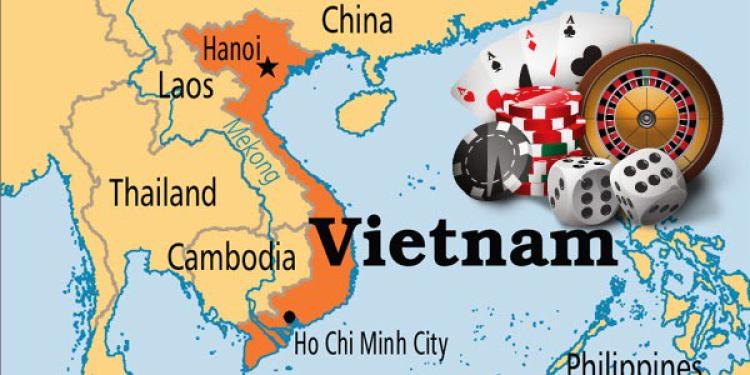Gambling with Politics: How the China-Vietnam Crisis Could Spur Vietnam to Open Its Casino Market
Posted: May 20, 2014
Updated: October 4, 2017

The recent China-Vietnam crisis and potential fallout may provide just the nudge that the Vietnamese government needs to open casinos to locals.
The current row between China and Vietnam has captured international attention due to the growing importance of the relationship between these two countries. Chinese companies have moved thousands of low-skill manufacturing jobs to their neighbor to the south.
This has increased opportunities for many, but has also led to growing anti-Chinese sentiment among many workers who feel exploited. While the current crisis was sparked by a single event, it is driven primarily by anti-Chinese sentiment in general.
While most people are viewing this as a major geopolitical crisis, we see it as having huge implications for the casino industry in Vietnam and the Asia-Pacific region at large. We’ll briefly summarize the crisis itself before getting into what it means for the gambling business.
What the hell is going on?
Last week the Chinese navy escorted a massive oil rig into waters claimed as sovereign territory by both governments. Beyond diplomatic wrangling over the issue, furious Vietnamese citizens have taken to the streets in protest, some of which have turned into violent riots.
Rioters have looted and torched many Chinese-owned businesses in addition to many mistaken for being Chinese. Chinese official statistics report that two Chinese citizens have been killed and more than 100 injured, but some observers put the death toll as high as 13.
More than 4,000 Chinese business owners and guest workers have fled back to China as of the weekend. The government is scrambling to contain violence and has promised to compensate foreign business owners affected by the riots, but the incident has put their authority in doubt.
Vietnam’s two-tiered casino system
Here’s why this is gambling news. Like nearby Singapore, Vietnam has a “no locals” policy meant to cash in on gambling revenues from tourists while limiting the negative social effects of the activity. Only holders of foreign passports are allowed into casinos.
• The Vietnamese casino market depends primarily on Chinese customers to remain profitable
• While locals are not allowed to enter casinos, the government is debating allowing them in, as millions of Vietnamese cross the border to Cambodia to gamble
• The recent crisis will reduce the number of Chinese traveling to Vietnam, so the government has added incentive to change laws
Unsurprisingly, most places to legally gamble are found in northern Vietnam near the border with China. Why? The Chinese government bans the activity everywhere except Macau, whose location and high prices make it off-limits for the average Chinese. So many take day or weekend trips to China.
While foreign gambling dollars have given a boost to the Vietnamese economy, the authorities have been troubled by recent reports that millions of locals cross the border into Cambodia each day to gamble. While the authorities would rather that citizens refrained from gambling altogether, it’s clear that they have no way of stopping them so long as they do it abroad.
The current situation means millions of dollars are flying out of the country. Policymakers have been debating opening casinos to locals, at least on an experimental basis, throughout late 2013 and 2014. But they haven’t found the motivation needed to take the plunge and alter existing laws.
Chinese customer base likely to dry up
The current crisis could be the straw that breaks the camel’s back. Angry Vietnamese workers are torching Chinese-owned businesses and while the authorities have vowed to protect Chinese nationals, they don’t seem to be doing a very good job of it.
With relations between the two counties in the deep-freeze and most Chinese likely seeing Vietnam as hostile territory, don’t expect as many gamblers to make the trek southward. With its major source of business cut off (at least partially) Vietnamese casino operators will be forced to find new customers.
Complicating matters is that the Vietnamese government is currently trying to lure foreign casino investors (namely Sheldon Adelson) into projects there. The current crisis has put the government’s commitment to foreign investment in doubt, with China Daily summing things up:
The severity of the violence and the heavy losses foreign firms have suffered raises the question of whether the Vietnamese government attaches enough importance to the interests of investors and the security of foreign factories.
The government will have to dangle a significant carrot to get foreigners to invest under these conditions. That’s where changing Vietnamese gambling laws to include locals comes in.
It would ensure a steady stream of customers and revenue for the country’s casinos, keeping them profitable as well as reassuring foreign investors that there will be customers to fill their casinos and hotels.
Conclusion
For now, the Vietnamese government is focused on getting the situation under control and preventing foreign companies (mostly, but not exclusively, Chinese) from leaving permanently. But once the dust settles, it will get back to everyday issues.
The casino gambling debate will become even more important. While one can’t tell the future with any certainty, expect Vietnam to begin gradually allowing locals into casinos sometime later this year.












